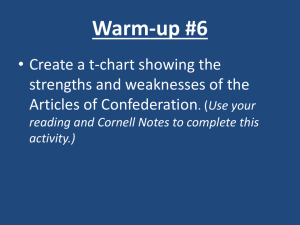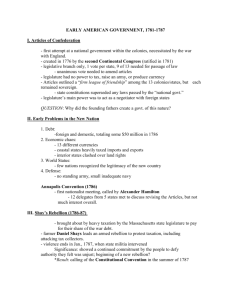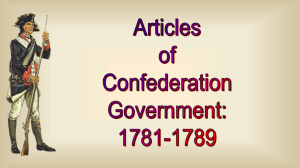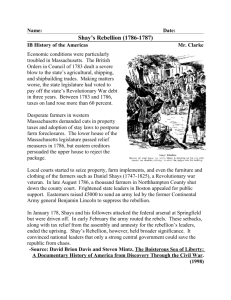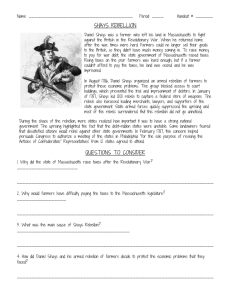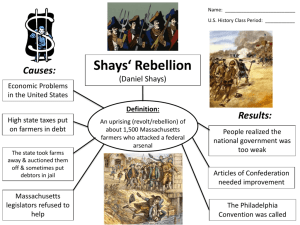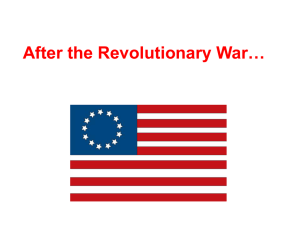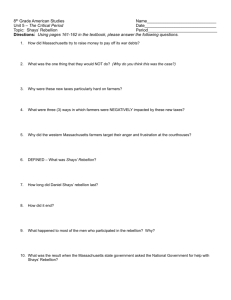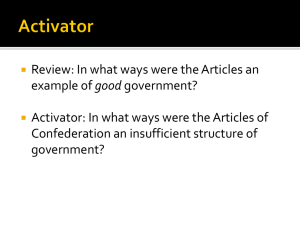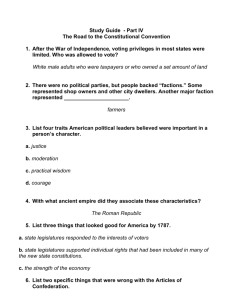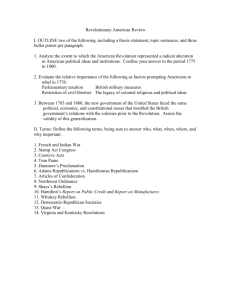Shays Rebellion - Sons Of Liberty
advertisement
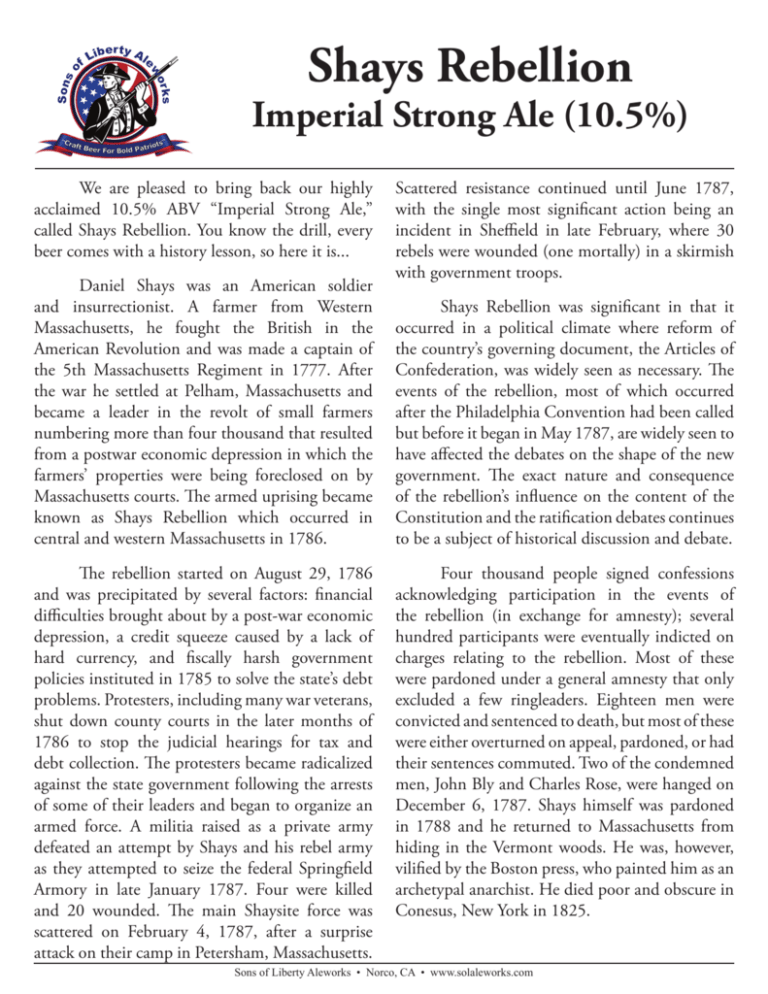
Shays Rebellion Imperial Strong Ale (10.5%) We are pleased to bring back our highly acclaimed 10.5% ABV “Imperial Strong Ale,” called Shays Rebellion. You know the drill, every beer comes with a history lesson, so here it is... Daniel Shays was an American soldier and insurrectionist. A farmer from Western Massachusetts, he fought the British in the American Revolution and was made a captain of the 5th Massachusetts Regiment in 1777. After the war he settled at Pelham, Massachusetts and became a leader in the revolt of small farmers numbering more than four thousand that resulted from a postwar economic depression in which the farmers’ properties were being foreclosed on by Massachusetts courts. The armed uprising became known as Shays Rebellion which occurred in central and western Massachusetts in 1786. The rebellion started on August 29, 1786 and was precipitated by several factors: financial difficulties brought about by a post-war economic depression, a credit squeeze caused by a lack of hard currency, and fiscally harsh government policies instituted in 1785 to solve the state’s debt problems. Protesters, including many war veterans, shut down county courts in the later months of 1786 to stop the judicial hearings for tax and debt collection. The protesters became radicalized against the state government following the arrests of some of their leaders and began to organize an armed force. A militia raised as a private army defeated an attempt by Shays and his rebel army as they attempted to seize the federal Springfield Armory in late January 1787. Four were killed and 20 wounded. The main Shaysite force was scattered on February 4, 1787, after a surprise attack on their camp in Petersham, Massachusetts. Scattered resistance continued until June 1787, with the single most significant action being an incident in Sheffield in late February, where 30 rebels were wounded (one mortally) in a skirmish with government troops. Shays Rebellion was significant in that it occurred in a political climate where reform of the country’s governing document, the Articles of Confederation, was widely seen as necessary. The events of the rebellion, most of which occurred after the Philadelphia Convention had been called but before it began in May 1787, are widely seen to have affected the debates on the shape of the new government. The exact nature and consequence of the rebellion’s influence on the content of the Constitution and the ratification debates continues to be a subject of historical discussion and debate. Four thousand people signed confessions acknowledging participation in the events of the rebellion (in exchange for amnesty); several hundred participants were eventually indicted on charges relating to the rebellion. Most of these were pardoned under a general amnesty that only excluded a few ringleaders. Eighteen men were convicted and sentenced to death, but most of these were either overturned on appeal, pardoned, or had their sentences commuted. Two of the condemned men, John Bly and Charles Rose, were hanged on December 6, 1787. Shays himself was pardoned in 1788 and he returned to Massachusetts from hiding in the Vermont woods. He was, however, vilified by the Boston press, who painted him as an archetypal anarchist. He died poor and obscure in Conesus, New York in 1825. Sons of Liberty Aleworks • Norco, CA • www.solaleworks.com
